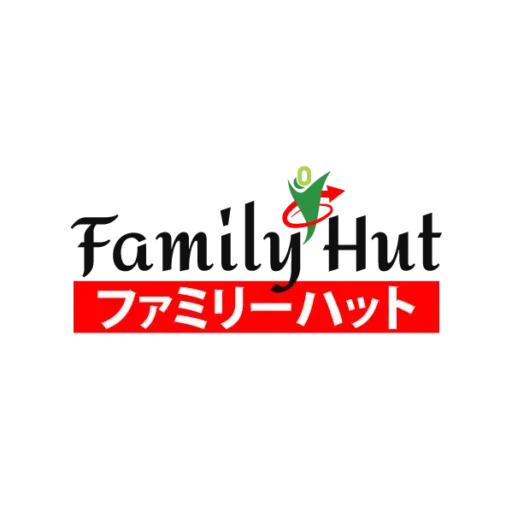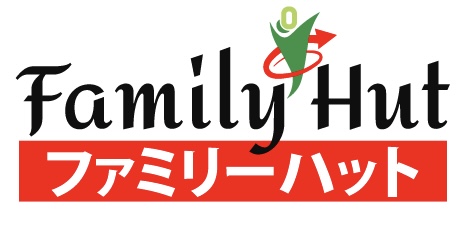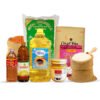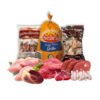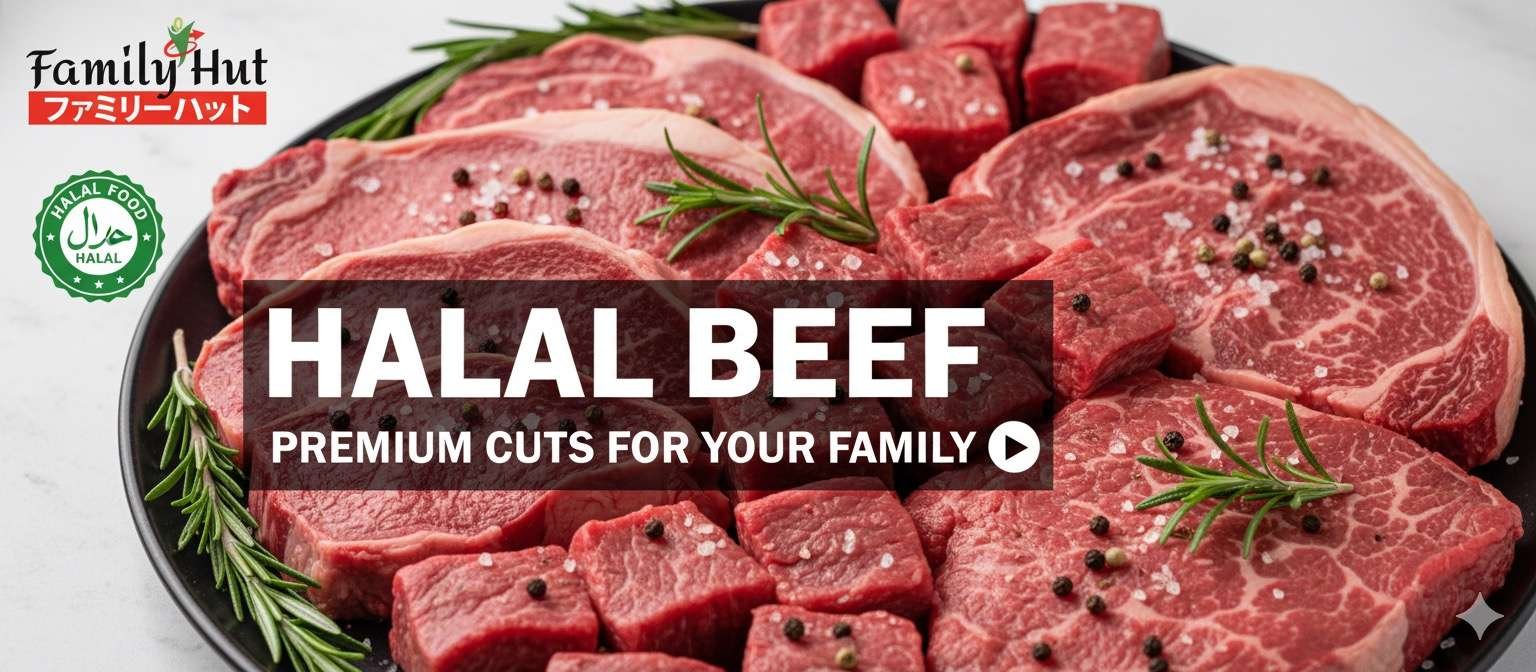
What Makes Halal Beef Special in Japan | Halal Food |Family Hut
Introduction to Halal Beef
Halal beef refers to the meat that is prepared in accordance with Islamic dietary laws as outlined in the Quran. The term “halal” translates to “permissible” in Arabic, signifying food that adheres to specific religious guidelines. For the Muslim community, the consumption of halal meat is not merely a dietary preference, but a vital aspect of their faith. It embodies the principles of cleanliness, respect for life, and adherence to divine instructions. These aspects contribute to making halal beef particularly significant within the Islamic faith.
To be classified as halal, the slaughter of the animal must follow stringent guidelines. This encompasses the humane treatment of the animal, the use of sharp instruments for a swift kill, and the invocation of God’s name at the time of slaughter. The intention behind these practices is to ensure that the animal is treated with dignity throughout its life and during the slaughtering process. Following this, the meat must be further processed and handled in a manner consistent with halal principles, which include avoiding cross-contamination with non-halal substances.
In Japan, the demand for halal beef has surged due to the increasing Muslim population, as well as the growing interest in halal diets among non-Muslims. This shift has encouraged Japanese producers and retailers to comply with halal standards, thus embracing a broader cultural perspective. The country has seen a rise in halal-certified establishments, ranging from restaurants to markets, which aim to cater to both the local and international Muslim community. Consequently, the understanding and application of halal principles in the Japanese context not only serve to satisfy religious obligations but also foster a greater appreciation for diversity in culinary practices.
Challenges in Finding Authentic Halal Beef in Japan
For Muslims residing in or visiting Japan, locating authentic halal beef can pose considerable challenges. One of the primary issues is the limited availability of halal-certified products throughout the country. While Japan has made strides in accommodating its multicultural populace, particularly with regard to food options, the prevalence of halal beef remains sparse. Many larger cities like Tokyo and Osaka offer some halal establishments, yet these are often outnumbered by non-halal restaurants and retailers, making it increasingly difficult for consumers to find suitable options.
Another significant hurdle stems from widespread misconceptions regarding halal practices. A notable portion of the Japanese population possesses little understanding of the halal certification requirements, which can lead to confusion and inaccuracy about what constitutes halal food. Without proper awareness and education about the principles of halal, there can be unintended errors in meat sourcing and preparation, leaving Muslim consumers uncertain about the authenticity of what they are purchasing.
Traceability in meat sourcing is also a crucial factor that contributes to the difficulties faced by those in search of halal beef. Authentic halal procedures necessitate stringent guidelines surrounding the entire process — from animal husbandry to slaughtering and processing. However, many suppliers in Japan may not have robust systems in place to verify adherence to these practices. This lack of traceability raises concerns about compliance with halal standards, prompting many consumers to exercise caution when selecting beef products. When halal certification is absent or unclear, the risks of unintentionally consuming non-halal beef increase, further complicating the process for those following halal dietary rules.
Family Hut: Your Trusted Source for Halal Beef
When it comes to procuring halal beef in Japan, Family Hut stands out as a trusted online retailer committed to providing customers with the highest quality products that adhere to Islamic dietary laws. Family Hut ensures that all its beef offerings carry the essential 100% halal certification, which is a testament to their dedication towards maintaining authenticity and trustworthiness in the halal food market.
The beef sold at Family Hut is sourced from reputable suppliers who share the same commitment to quality and adherence to Islamic principles. These suppliers are carefully vetted to ensure they meet the stringent requirements outlined by halal certification authorities. This thorough sourcing process guarantees that customers receive only the finest halal beef, which is free from any non-halal ingredients or processing methods. Family Hut’s proactive approach emphasizes their intention to offer a safe and reliable option for those seeking halal dietary choices.
At the core of Family Hut’s operations is the adherence to zabiha halal, a method that requires the animal to be slaughtered following specific Islamic guidelines. This practice not only respects the ethical treatment of animals but ensures the meat produced is healthy and pure for consumption. Family Hut advocates for transparency in their operations, making it easy for customers to trace the source of their meat and understand the commitment behind every product discount. By prioritizing strict compliance with zabiha halal, Family Hut reassures customers that they are providing not only flavorful and high-quality beef but also respect for Islamic traditions.
In this evolving marketplace, Family Hut provides security and peace of mind to halal-conscious consumers in Japan, ensuring that they can confidently enjoy their meals without compromise.
Quality and Freshness Assurance
Ensuring the premium quality of halal beef is a fundamental aspect of Family Hut’s operations. The process begins with the careful selection of cuts, undertaken by experienced professionals familiar with the nuances of halal meat preparation. Family Hut sources its beef from trusted suppliers who adhere to stringent halal standards. This commitment guarantees that only the freshest and highest quality meat is procured, catering to the diverse culinary needs of customers in Japan.
Once the beef is selected, Family Hut employs advanced packaging methods to maintain freshness and tenderness. The quality assurance procedures include vacuum sealing and temperature-controlled storage, which significantly extend the meat’s shelf life without compromising its natural flavor and quality. By minimizing the exposure to air and ensuring consistent temperature management, the packaging not only preserves the beef but also protects it from contamination, thus ensuring a superior product is delivered to consumers.
Family Hut’s commitment to quality does not end with sourcing and packaging. Regular checks and audits are conducted throughout the supply chain to uphold the highest standards. Each step of the process, from handling to delivery, is monitored to ensure that the halal beef maintains its integrity. This rigorous approach reinforces consumers’ trust, as they can be confident that they are purchasing halal beef that is both delicious and ethically produced. Moreover, Family Hut continuously engages with its customers, seeking feedback to enhance product quality further and to adapt to the evolving preferences within the market.
In summary, through meticulous selection, effective packaging techniques, and consistent quality assurance practices, Family Hut exemplifies a commitment to providing the finest halal beef available in Japan.
Versatile Culinary Uses for Halal Beef
Halal beef is recognized for its strict adherence to Islamic dietary laws, but its culinary versatility extends far beyond religious constraints. In Japan, halal beef can be transformed into a plethora of delectable dishes that appeal to diverse palates. One of the most popular options is Japanese-style beef curry. This dish marries tender chunks of halal beef with a rich, aromatic curry sauce. The inclusion of vegetables and spices creates a comforting, well-rounded meal that can be enjoyed by anyone, regardless of dietary preference.
Another culinary favorite in Japan is BBQ yakiniku, where thinly sliced halal beef is grilled to perfection and often served with a variety of dipping sauces. The grilling brings out a unique flavor that complements the natural richness of the beef, making it an ideal choice for social gatherings and events. In addition, halal beef serves as an essential ingredient in traditional Bangladeshi bhuna, a rich, slow-cooked dish characterized by its spicy flavor profile. The marinated beef absorbs the blend of spices, creating a fragrant dish that pairs beautifully with rice or naan.
Pakistani and Indian cuisines also utilize halal beef extensively, particularly in the form of beef kebabs. These skewered delights are seasoned with an array of spices and grilled, resulting in a juicy and flavorful bite. Similarly, halal beef finds its way to Nepali cuisine in the form of beef momo, which are dumplings stuffed with spiced minced beef. These snacks are not only popular for their taste but also for the communal experience they foster during preparation and consumption.
The ability of halal beef to seamlessly adapt to various culinary styles illustrates its global appeal. From traditional Eastern dishes to modern Western cuisine, halal beef offers limitless possibilities, ensuring that it remains a staple ingredient across cultures.
Delivery Services Across Japan
Family Hut offers an extensive array of delivery services throughout Japan, catering specifically to consumers seeking halal beef. The service areas include major urban centers such as Tokyo, Osaka, Chiba, Nagoya, Sapporo, and even Okinawa, ensuring that customers across the country have access to high-quality halal products. This widespread coverage facilitates accessibility for many who may have difficulty finding halal meat in their local supermarkets or grocery stores.
One key aspect of Family Hut’s delivery service is its commitment to maintaining a stringent cold-chain delivery system. This system ensures that halal beef retains its freshness and quality from the moment it leaves the store until it reaches the customer’s doorstep. By strictly adhering to temperature controls during transportation, Family Hut guarantees that the halal beef provided is not only safe to consume but also deliciously fresh, meeting the high standards expected by its customers.
The convenience of ordering from Family Hut is enhanced by its user-friendly online platform, which allows customers to place orders with ease at any time. This digital service is particularly advantageous for busy individuals or families who may not have the time to visit a physical store. For those who prefer in-person shopping, Family Hut has a physical location conveniently situated near Goi Station in Chiba, where customers can experience the selection of halal beef firsthand.
Overall, the combination of a comprehensive delivery network, a commitment to quality through a cold-chain system, and the convenience of both online and physical shopping makes Family Hut a standout provider of halal beef in Japan. It exemplifies how food delivery services can cater to niche markets effectively while prioritizing customer satisfaction.
Health and Safety Standards in Halal Beef Processing
When it comes to the processing of halal beef, especially at establishments like Family Hut in Japan, adherence to stringent health and safety standards is paramount. The operation not only emphasizes the significance of maintaining high hygiene practices but also ensures that all processing methods resonate with Islamic principles, which govern halal certification. This dual focus on hygiene and compliance is essential to uphold the quality and safety of the halal beef provided to consumers.
The initial phase of halal beef processing involves the careful selection of livestock, where animals are sourced from trusted suppliers who maintain outstanding animal welfare standards. Upon arrival at the processing facility, the animals are inspected to guarantee that they are healthy and suitable for consumption, which is a critical aspect of both halal and general food safety regulations.
Once the animals are deemed fit, the slaughtering process is conducted in a manner that aligns with Islamic teachings. The personnel involved undergo rigorous training in halal slaughter techniques, and they are also well-versed in biosecurity measures. This ensures that all practices not only conform to halal regulations but also mitigate any risk of contamination during the procedure.
After slaughtering, a comprehensive cleaning protocol is executed within the processing area. Equipment and surfaces are sanitized frequently, ensuring that any potential pathogens are effectively eliminated. Compliance with Japan’s food safety laws, alongside halal standards, plays a crucial role in preserving the health of the consumer and ensuring that the halal beef remains safe for consumption.
The final but equally crucial aspect involves regular audits and inspections, which are carried out to verify that all health and safety measures are upheld consistently. This commitment to maintaining high standards is what makes halal beef, particularly from Family Hut, a reliable choice for consumers seeking ethically prepared, safe, and high-quality halal meat.
Why Choose Family Hut Japan for Halal Beef
Family Hut Japan stands out as an exemplary choice for those seeking high-quality halal beef. One of the primary reasons to select Family Hut is their unwavering commitment to maintaining 100% halal certification across all their products. This certification ensures that every cut of beef meets the stringent requirements of halal dietary laws, giving consumers peace of mind about the products they are purchasing.
In addition to certification, Family Hut prides itself on the freshness and hygienic packing of its offerings. Customers can expect the highest standards of safety and cleanliness, which are crucial factors in ensuring meat quality. Family Hut employs rigorous measures to monitor and maintain hygiene throughout the entire supply chain, from sourcing to storage and packaging. This commitment not only elevates the quality of their halal beef but also fosters trust among consumers, who can feel confident in the product’s safety.
Moreover, Family Hut’s strong commitment to quality is evident in its sourcing practices. The establishment prioritizes locally sourced halal beef while also importing premium cuts from reputable suppliers. This blend allows Family Hut to offer a broader selection of halal beef, catering to diverse tastes and preferences. By combining local and imported options, they ensure that customers receive only the finest halal beef available in the market.
In summary, Family Hut Japan’s dedication to 100% halal certification, emphasis on freshness and hygiene, and a balanced sourcing strategy make it a prominent choice for halal beef enthusiasts. Whether you are a local resident or a visitor, choosing Family Hut guarantees a satisfying and reliable halal dining experience.
Conclusion
In conclusion, the significance of halal beef in Japan cannot be overstated, particularly for the Muslim community residing in the country. Access to high-quality halal meat is crucial, as it ensures the observance of dietary laws while also allowing for the enjoyment of diverse culinary options. As Japan’s interest in halal products continues to grow, it is essential for the Muslim population to identify reliable sources of halal beef that meet their needs.
Family Hut stands out as a commendable option for those seeking quality halal meat. Besides offering an extensive selection of halal beef products that adhere to Islamic guidelines, Family Hut prides itself on the convenience it provides to its customers. The ease of accessing premium halal cuts, alongside its commitment to maintaining the highest standards in processing, helps to alleviate concerns regarding compliance with halal regulations.
Moreover, Family Hut’s dedication to customer service and community engagement fosters a welcoming environment for those pursuing halal dietary options. By choosing Family Hut, consumers can be assured that they are supporting a business that prioritizes quality and ethical practices in the meat industry. In a multicultural society like Japan, the demand for halal beef is not merely a matter of necessity but also an opportunity for camaraderie and cultural exchange.
As the halal market grows, so too will the variety of products available, making the integration of halal beef into daily life easier and more enjoyable for Muslims in Japan. We encourage readers to consider Family Hut as their preferred destination for halal meat, combining quality with a commitment to serving the needs of the community. Together, let us embrace the diverse offerings in Japan’s halal landscape, ensuring that everyone can enjoy delicious meals while honoring their traditions and beliefs.
